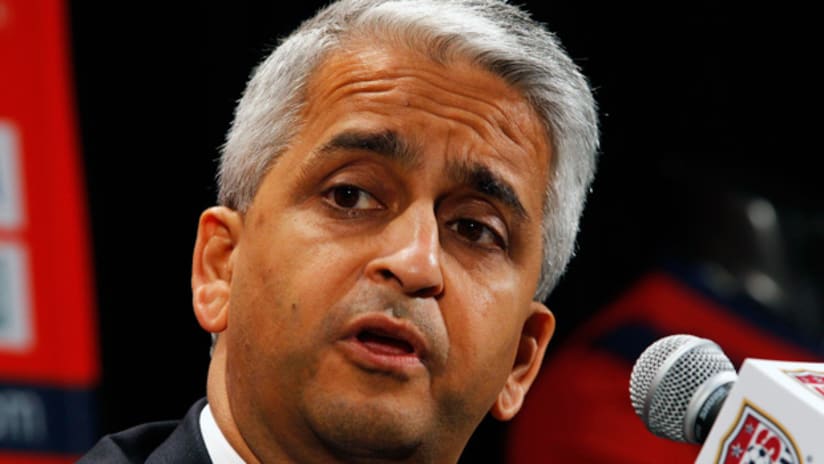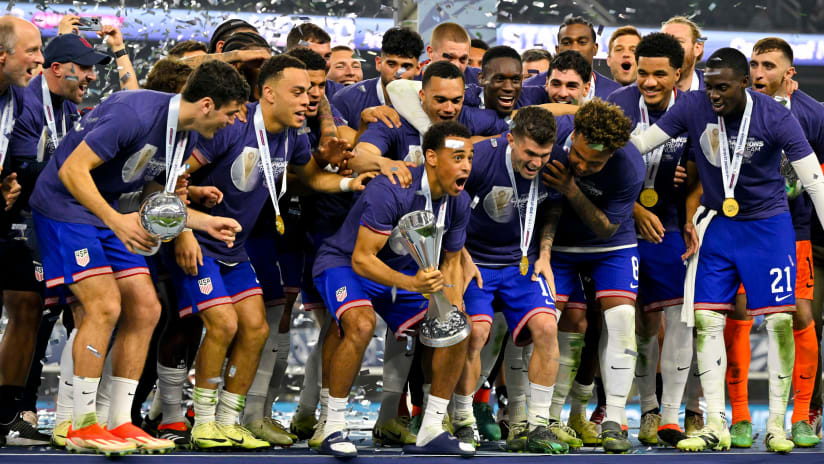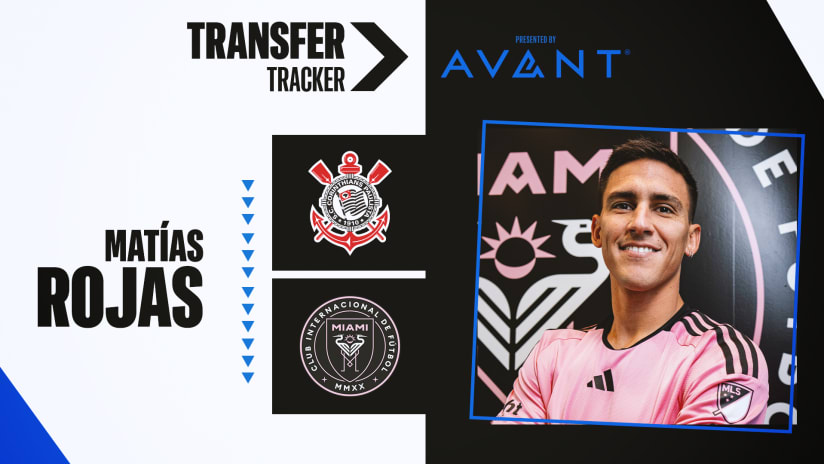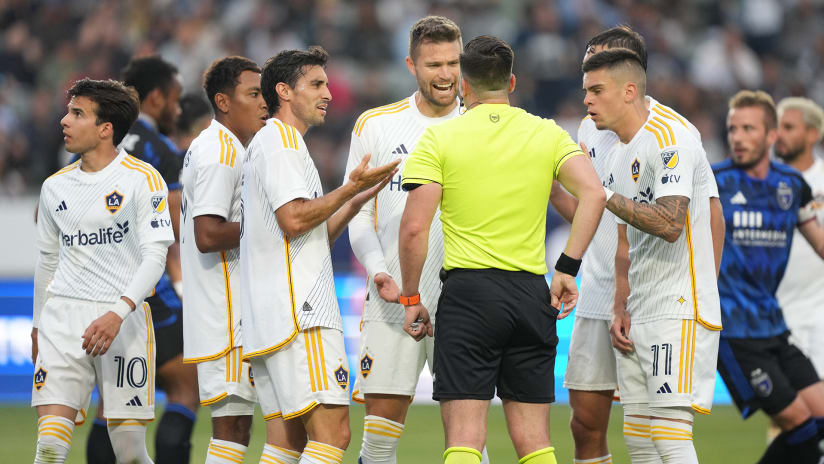As the newly elected member of FIFA's 25-man executive committee, U.S. Soccer Federation president Sunil Gulati is hoping he can help bring about the change that many are clamoring for inside the world governing body.
"I think in fact there is, at the highest level, a sincere effort to try to reform and change the organization," Gulati told a media conference call on Monday afternoon. "I think some of the things that have happened show that. Clearly there needs to be a lot more done."
High-ranking FIFA officials have faced allegations of corruption and lack of transparency, but Gulati indicated that there could potentially be new measures passed at the next executive committee meeting on May 31 that will help address the negative perception of the organization.
That meeting will mark Gulati's first in his new post after his election last week at the CONCACAF Congress in Panama City. It was a tight 18-17 vote that he described as "nerve-wracking" with the voters standing up and casting their votes publicly. It was 17-17 with the final vote from Anguilla tipping the balance in favor of the USSF president.
READ: Gulati takes over FIFA executive committee post occupied by Chuck Blazer
How serious is Gulati about reform at FIFA? He's willing to disclose his salary as an executive committee member if there's no confidentiality clause that prevents him from doing so.
"It is my belief that FIFA should in fact disclose the compensation of directors," he said. "Mine would be the same as everyone else's and I would have no problem of disclosing if it's not a violation of any provision with FIFA for directors."
But whether the issue is term limits, age limits or compensation levels of employees and outside contractors, Gulati understands that it's not as simple a process as many American soccer fans might think.
"By being American, are you an outsider on issues of governance because we've got standards in the US?" Gulati said. "There is an element of that because traditions and cultures are very different. There are any number of other areas where our experience, our legal system, our history and culture [in the United States] are different than other places. So it's not easy."














